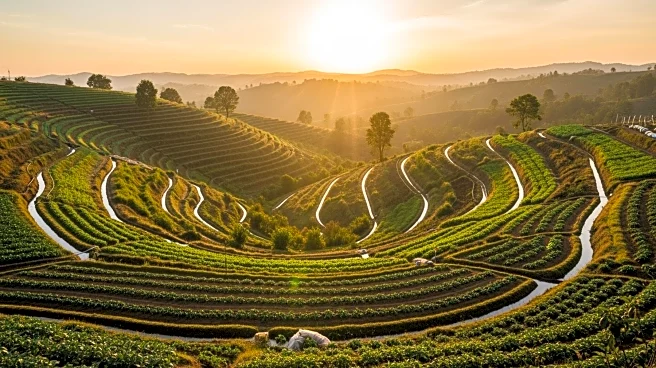What's Happening?
The Food and Agriculture Organization (FAO) of the United Nations is highlighting the importance of traditional agricultural practices as a means to combat climate change. The FAO has recognized 102 Globally
Important Agricultural Heritage Systems (GIAHS) worldwide, which include traditional farming methods that have sustained communities for centuries. These systems, such as Mexico City's chinampas and China's Aohan Dryland Farming System, demonstrate how traditional knowledge can contribute to climate resilience and food security. The FAO is working with GIAHS member countries to develop frameworks for measuring the impact of these systems on biodiversity, food security, and sustainable development.
Why It's Important?
The recognition of these agricultural heritage systems underscores the potential of traditional practices in addressing modern challenges like climate change and food security. By preserving and promoting these systems, the FAO aims to provide sustainable solutions that are rooted in historical knowledge. This approach not only helps in conserving biodiversity but also supports local economies and livelihoods. The initiative highlights the need for investment and long-term support to transform these heritage systems into models for climate resilience, which could have significant implications for global food security and environmental sustainability.
What's Next?
As part of its 80th anniversary, the FAO will recognize 28 new agricultural heritage systems across 14 countries, expanding the global total to 102. This recognition is intended to serve as a catalyst for further investment and support, turning these sites into living laboratories for climate resilience. The FAO will also open a new Food and Agriculture Museum and Network to promote the link between food, culture, and tradition, aiming to inspire global audiences and foster international collaboration in the fight against hunger and malnutrition.









